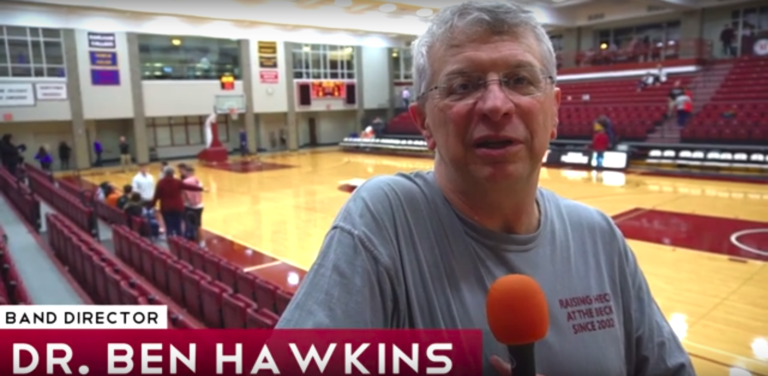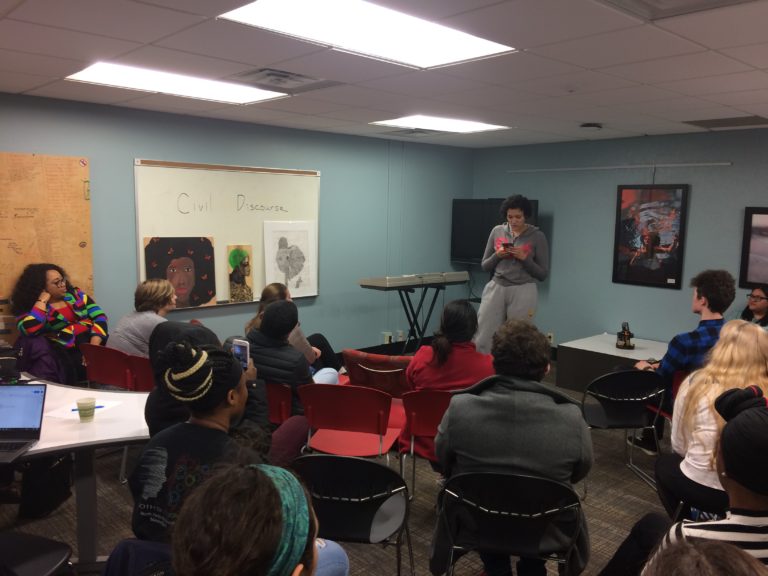This article is republished from The Conversation under a Creative Commons license. Read the original article. The original article was written by Ivory A. Toldson, Professor of Counseling Psychology, Howard University.
Of all the terms used to describe students who don’t perform well in traditional educational settings, few are used as frequently– or as casually – as the term “at-risk.”
The term is regularly used in federal and state education policy discussions, as well as popular news articles and specialty trade journals. It is often applied to large groups of students with little regard for the stigmatizing effect that it can have on students.
As education researcher Gloria Ladson-Billings once said of the term “at-risk,” “We cannot saddle these babies at kindergarten with this label and expect them to proudly wear it for the next 13 years, and think, ‘Well, gee, I don’t know why they aren’t doing good.’”
My most recent encounter with the term “at-risk” came when I was tapped to review and critique a draft report for the Maryland Commission on Innovation and Excellence in Education, also known as the “Kirwan Commission.”
The Kirwan Commission, chaired by William E. Kirwan, a longtime higher education leader, was created in 2016 to make recommendations for improving education in Maryland. The initial draft of the Kirwan Commission report included a working group report called, “More Resources for At-risk Students.”
Fortunately, in this instance, commission members were aware of some common objections to using “at-risk” to categorize students and publicly discussed the limitations of using the term. Some of those objections included risk of social stigma to students and lack of a uniform definition of “at-risk.”
However, when it came to finding a better way to describe students who show lower levels of academic success because of nonacademic factors, such as poverty, trauma and lack of English proficiency, commission members were not sure what term to use.
As an outside consultant for the commission, I was asked to come up with an acceptable alternative word or phrase. As I argue in my forthcoming book, “No BS (Bad Stats): Black People Need People Who Believe in Black People Enough Not to Believe Every Bad Thing They Hear about Black People,” three things are essential to good decision making in education: good data, thoughtful analysis and compassionate understanding. What I have to say about the term “at-risk” will be based on those three things.
Practical uses exist
First, let’s acknowledge that, paired with good data, “at-risk” is practically useful and generally accepted in professional and academic settings. Used effectively, identifying risk and protective factors can help mitigate harm to students.
For example, dating back to the 1960s, research about how exposure to lead placed children at risk for cognitive impairments helped educators create safer learning environments for students by removing lead from paint, toys and drinking water.
Today, in educational research and practice, educators routinely use “at-risk” to classify students who do not perform well in traditional educational settings. However, the factors that determine “at-risk” are often either unknown or beyond the control of the student, caregiver or educational provider.
As a scholar of counseling psychology – and as one who specializes in counseling persons of black African ancestry – I believe that to designate a child “at-risk” for factors such as growing up in a single-parent household, having a history of abuse or neglect, or how much money their families make or their race or ethnicity – adds more chaos and confusion to the situation. Instead, compassion and care are what are needed.
Never use ‘at-risk’ as an adjective
Using “at-risk” as an adjective for students is problematic. It makes “at-risk” a category like honors student, student athlete or college-bound student. “Risk” should describe a condition or situation, not a person. Therefore, “More Resources for At-risk Students” might more appropriately be “More Resources to Reduce Risk Factors for Students.”
Be specific
Assessments of risk should be based on good data and thoughtful analysis – not a catch-all phrase to describe a cluster of ill-defined conditions or characteristics. If the phrase “at-risk” must be used, it should be in a sentence such as: “‘This’ places students at risk for ‘that.’” If the “this” and “that” are not clearly defined, the “at-risk” characterization is useless at best, and harmful at worst. But when these variables are clearly defined, it better enables educators and others to come up with the solutions needed to reduce specific risk factors and improve outcomes.
Skip the alternatives
Common alternatives to “at-risk” include “historically underserved,” “disenfranchised” and “placed at-risk.” These indicators acknowledge that outside forces have either not served the individual student or population well, or have assigned the at-risk label to unwitting subjects.
These phrases move the conversation in the right direction. However, using these phrases still comes up short because they obscure the problem. For example, research suggests that child abuse, poverty and racism can place students at risk. However, different strategies can lessen each risk. When the risk factors are more clearly identified, it puts educators and others in a better position to strategically confront the issues that impede student learning. It also better enables educators and others to view the individual student separately and apart from the particular risk.
Some have suggested replacing the term “at-risk” with “at-promise.” While well-intended, the problem I see with that is it could easily be seen as a condescending euphemism for the term it was meant to replace.
The best alternative for ‘at-risk’
In my book, I describe an in-service training for staff members of a public high school, in which I asked the participants to describe the neighborhoods of their students. I heard phrases like “crime-ridden,” “broken homes” and “drug-infested.” I then asked if anyone grew up in neighborhoods that had similar characteristics. After several raised their hands, I asked, “How did you grow up in such a neighborhood and still become successful?” This question spurred a more meaningful discussion about the neighborhoods where students are from. It was a discussion that considered community assets – such as hope and resilience – against a more thoughtful examination of community challenges.
Every student has a combination of risk and protective factors among their friends, in their homes, schools and neighborhoods. These factors can help or hurt their academic potential. Students who live in poverty, or have been assigned to special education, or have a history of trauma, or who are English learners, may or may not be “at risk” depending on their respective protective factors. But when students are labeled “at-risk,” it serves to treat them as a problem because of their risk factors. Instead, students’ unique experiences and perspectives should be normalized, not marginalized. This reduces a problem known as “stereotype threat,” a phenomenon in which students perform worse academically when they are worried about living up to a negative stereotype about their group.
For all these reasons and more, I believe the best alternative to describe “at-risk students” is simply “students.” For what it’s worth, the Kirwan Commission agrees. The commission recently revised its call for “More Resources for At-risk Students” to “More Resources to Ensure All Students are Successful.”














Full Interview: Dr. Stephen Hess on Decentralized State Corruption in Yunnan Province